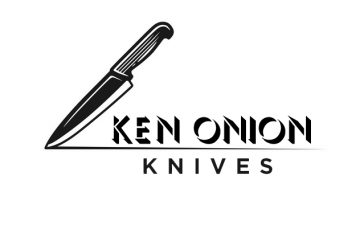There are many different types of steel, and it can be a little confusing when trying to choose the right one for your knife. You want to find a steel that balances hardness and toughness in the right ways.
The Rockwell hardness scale is a good way to figure out which steels have the right combination of those qualities. But there are also other factors that come into play, too.
Hardness
There is a range of steels to choose from, and a knife maker must balance four main considerations: edge retention, ease of sharpening, toughness and corrosion resistance. They must also consider weight, blade shape and heat treatment to achieve that balance.
The hardness of a knife is often measured using the Rockwell scale (HRC). Commercial kitchen knives are typically hardened to 55-60 HRC and handmade kitchen knives are generally hardened to 60-65 HRC or higher.
The higher the carbon content of a steel the harder it is, and this is important to consider when choosing a steel for your knife. A knife with too much carbon can be brittle and increase the risk of corrosion.
Corrosion Resistance
Mild steel, also known as low carbon steel, is a common choice for knife blades. It’s a relatively affordable material that can be used in many different types of projects.
The carbon content of mild steel is generally around 0.05% to 0.25%. This is enough to give it a toughness that’s suitable for most uses, but not quite as hard as stainless steel or other more expensive options.
There are other alloying elements in steel that contribute to a number of additional properties. They increase strength, heat resistance and corrosion resistance.
Chromium, for example, combats corrosion while adding to the overall strength of the steel. Often, stainless steel knives will have chromium as a main ingredient, typically at a minimum of 12%.
Toughness
The strength of a knife blade is mainly determined by the type of steel used. There are several types of steel, each with its own benefits and drawbacks.
When selecting a knife steel, four main considerations have to be balanced for the best results: edge retention, ease of sharpening, toughness and corrosion resistance. In general, a harder steel will have better edge retention, but it may also be more difficult to sharpen and brittle.
Many knives are made from carbon steel, which contains a high amount of carbon and helps the blade retain its edge longer. However, this type of steel must be heat treated properly to get the best results. If the steel is quenched too quickly, it can become brittle and may fracture, while if the steel is allowed to anneal or normalize too long, it can become soft and not hold an edge very well.
Durability
Mild steel is a great choice for blades that don’t need to be very strong. It is much more ductile and malleable than high steel, making it easy to mould into different shapes.
In addition to carbon, mild steel has other alloying elements like chromium and nickel that help strengthen the metal. They also improve its corrosion resistance.
Manganese helps increase the hardness of the steel as well as strength. It will also help prevent chipping in the blade, and it will allow it to remain stronger at higher temperatures during quenching.
Niobium is another grain refiner and carbide former that contributes to improved toughness, wear resistance, and edge retention. It is used in small relative amounts and is often used in conjunction with other ingredients like chromium or molybdenum for the best results.
There are four main considerations in knife steel that need to be balanced for the best performance: edge retention, ease of sharpening, toughness, and corrosion resistance. Knife makers are constantly striving to find a balance that works for their products.
